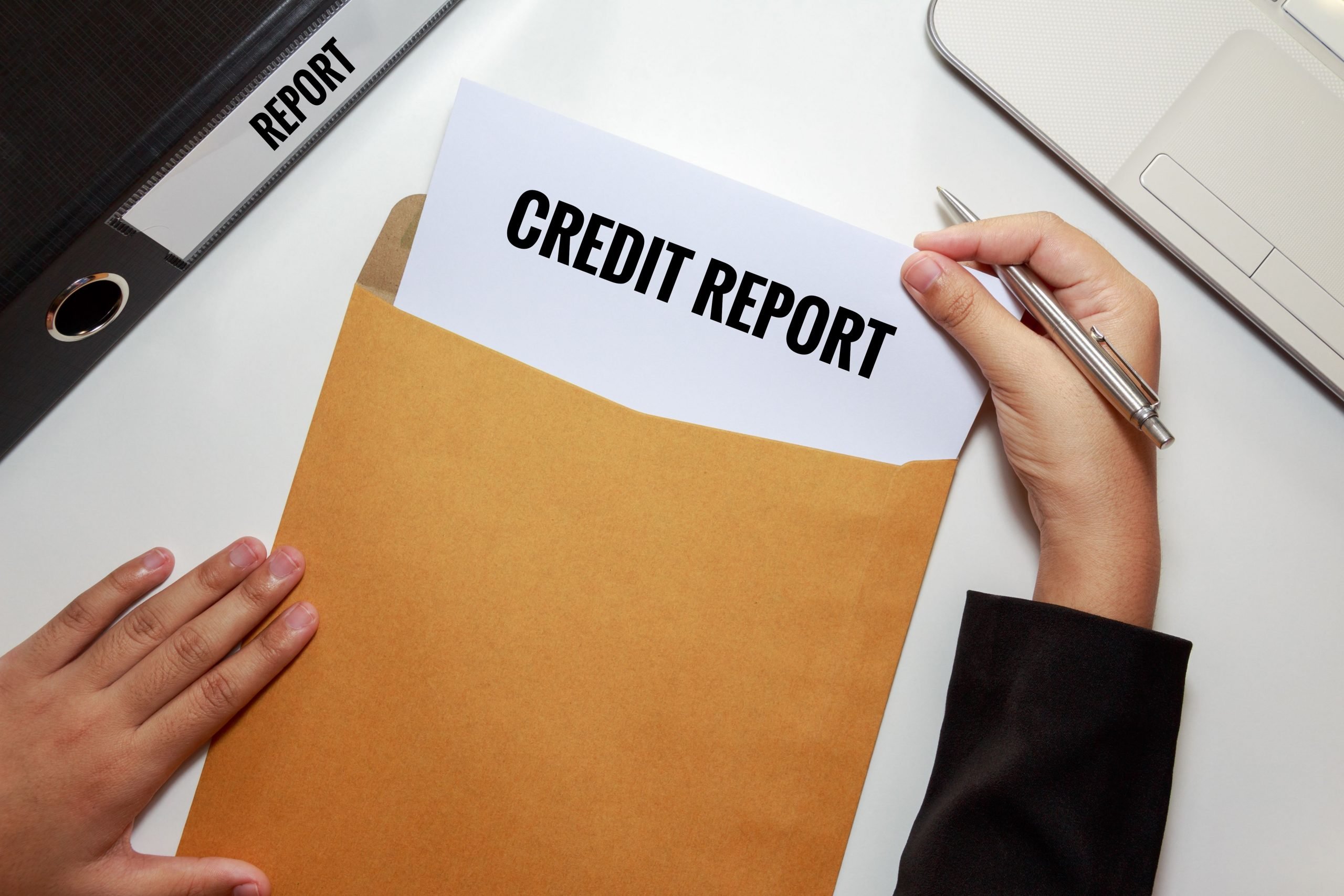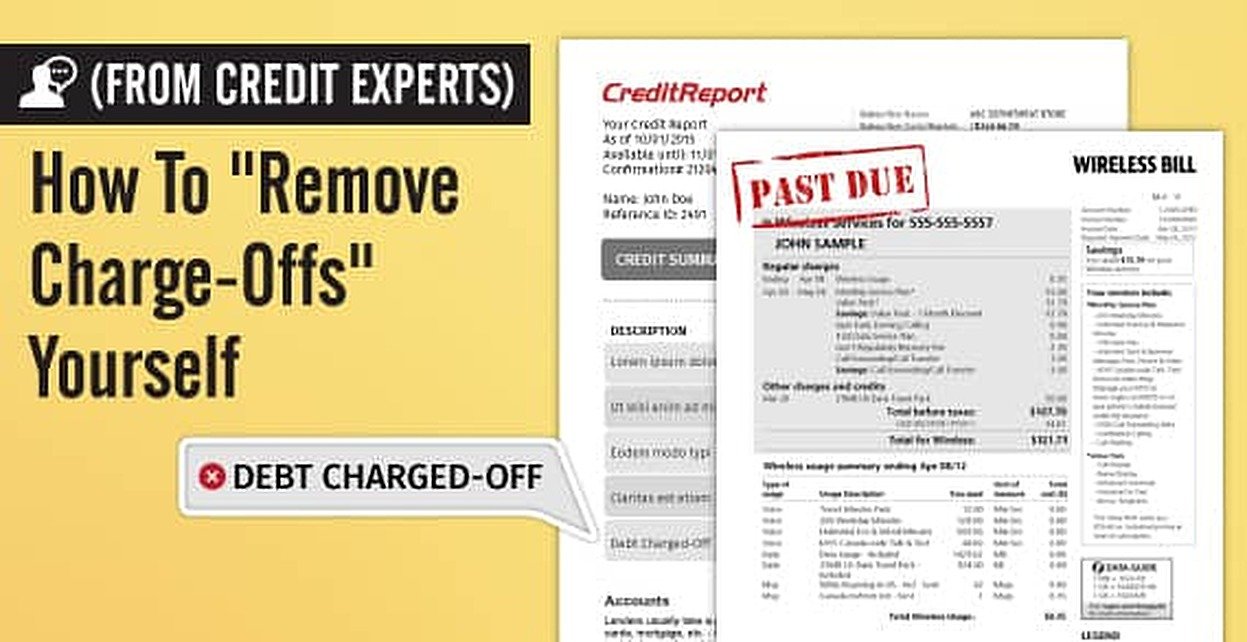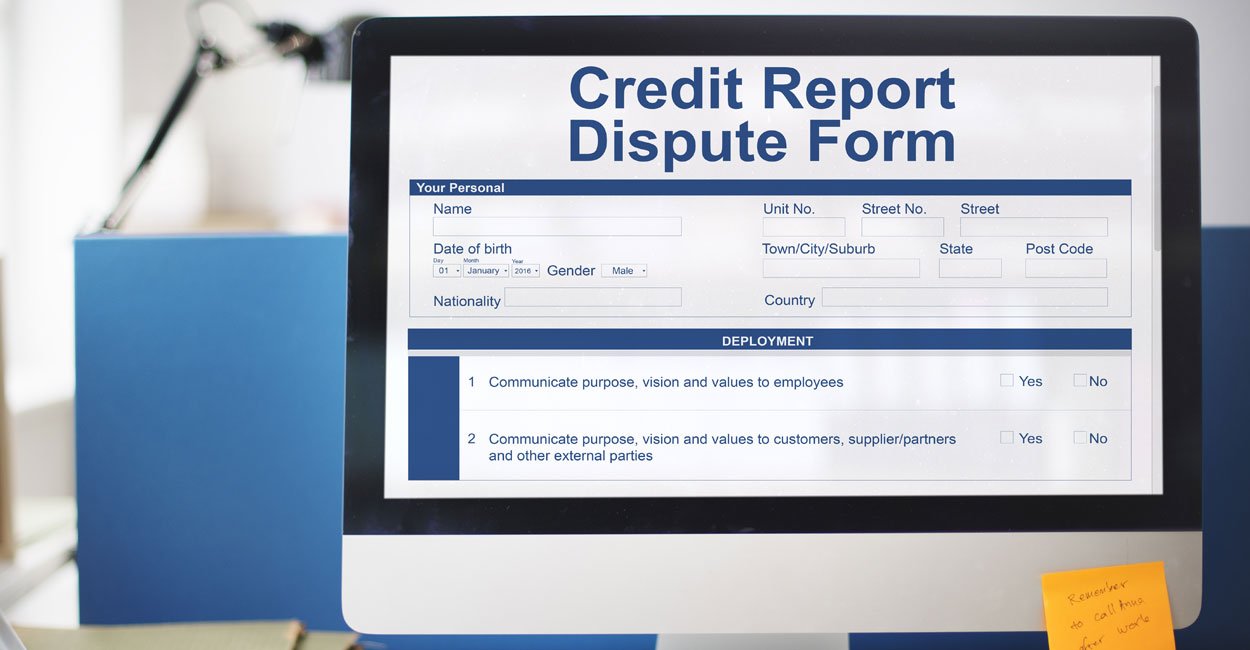Can You Recover Credit Scores After A Charge
All is not lost when you have a charge-off account. You can recover your credit score by making on-time payments on ALL of your other accounts and simply by giving it some time. As the charge-off gets older, it will have less impact on your credit score, especially if its outweighed by other positive information.
In a 2014 study by the Urban Institute, Delinquent Debt in America, it was found that among adults who have a credit file:
- 35% of U.S. consumers have a debt or unpaid bill that has been sent to collections, and
- 5% of U.S. consumers have a recent debt or bill that is more than 30 days late.
Charge-off accounts should be avoided by any means necessary. It is detrimental to a credit score.
Hire A Credit Repair Company
The FRCA gives you the right to dispute inaccurate information on your own. However, you dont have to manage the process by yourself. Some people prefer to hire credit experts to assist with getting a charge off removed.
Of course, theres no guarantee that credit experts will be able to remove a charge off from your credit report. Any trustworthy company will be quick to point out this fact. But if youre comfortable with the fees and you dont want to send and track credit disputes yourself, working with the best credit repair companies might be a good fit for you.
If youre looking for a good credit repair company that gets results, our top recommendation is . They are the most successful company for getting negative items removed from your credit, including charge offs. Take advantage of their free credit consultation to see how they can help you.
What Types Of Derogatory Marks Are There
When youre checking your credit report for negative information, it helps to know what to look for.
Here are some types of derogatory marks that can end up on your credit report, in order from the least to most severe:
- Late payments: A late payment can be reported when its overdue by more than 30 days, and it will experience an uptick in severity every 30 days.
- Loan and credit defaults: For installment loans such as mortgages, auto loans or student debt, your loan might be listed as in default. When your loan defaults depends on your account agreement, but its typically after 120 to 180 days of nonpayment.
- Debts sent to collections: Once an account is overdue by a certain number of days, it might be sold to a collection agency, which can put a new derogatory mark on your credit.
- Foreclosures or repossessions: If a mortgage lender foreclosed on a home you owned or you had a vehicle repossessed, those situations usually are listed as derogatory marks.
- Bankruptcies: If you in the past seven to 10 years, this event will be listed on your credit reports.
Read Also: Does Paypal Report To Credit Bureaus
How To Remove Charge
When you fall behind on a bill, it usually isnt long before you start receiving calls and letters from your creditor. When you miss enough payments, the creditor may eventually give up on trying to collect the debt. At that point, the creditor often closes your account and marks it as a charge-off.
Mail A Copy Of Your Documents Along With Your Request To Confirm/update Your Address To:

TransUnion LLC
P.O. Box 1000
Chester, PA 19016
When providing proof of your current mailing address, please ensure that any bank statements, utility bills, cancelled checks, and letters from a homeless shelter are not older than two months. All state issued license and identification cards must be current and unexpired. P.O. Box receipts may not exceed more than one year in age. Please note that any electronic statements printed from a website cannot be accepted as proof of address.
You May Like: Repo On Credit Report
What Happens To A Debt After Seven Years
Seven years is a well-known time limit when it comes to debt. It’s referred to so often that many people have forgotten what really happens to credit cards, loans, and other financial accounts after the seven-year mark.
Seven years is the length of time that many negative items can be listed on your credit report, as defined by the Fair Credit Reporting Act. This includes things like late payments, debt collections, charged-off accounts, and Chapter 13 bankruptcy. Certain other negative items, like some judgments, unpaid tax liens, and Chapter 7 bankruptcy, can remain on your credit report for more than seven years.
The Credit Repair Option
Another option is to work with a legitimate company to try to get charge-offs or other negative information removed from your credit file. While this can save you time, there’s typically a fee involved, and in most cases, the credit repair company can’t do anything for you that you couldn’t do by yourself.
Worse, some credit repair companies are just thinly disguised scams whose only goal is to defraud people who need credit help.
Don’t Miss: Klarna Credit Approval Odds
Do I Still Have To Pay The Debt
If youre wondering how long something stays on your credit report, its important to keep this in mind: Your debt isnt simply erased once it falls off your credit reports. If you never paid off the debt and the creditor is within the statute of limitations, they may try to collect the money. The creditor can call and send letters, sue you or get a court order to garnish your wages.
Even outside the statute of limitations, collection companies can still try to collect the debt. Stale debts represent a thriving business, as they are often sold and resold for pennies on the dollar. Even a partial payment makes a call or letter worthwhile for the collector.
The only sure way to get rid of a debt is to pay what you owe, or at least an agreed-upon part of what you owe. If youre looking to put your debt behind you and move on with a clean slate, contact the collectors listed on your credit report. Before making the phone call, make sure you know:
- The debt is legally yours.
- How much you owe the creditor.
- What you can realistically afford to pay per month or in a lump sum.
If you negotiate a payment for less than the full amount owed, be sure to get the payment agreement in writing from the collector before you send in any payment.
Your Complete Guide To Dealing With Collections And Charge
Many or all of the products here are from our partners. We may earn a commission from offers on this page. Its how we make money. But our editorial integrity ensures our experts opinions arent influenced by compensation. Terms may apply to offers listed on this page.
There are five categories of information that make up your FICO® Score. None is more important than your payment history, which accounts for 35% of the total. The most obvious piece of this category is whether you pay your bills on time or not, and for people with strong credit histories, it usually ends there.
On the other hand, if you’re one of the millions of Americans without a spotless credit history, some other things could be weighing down your in the payment history category. Two big ones are collection accounts and charge-offs. These can be score-killers and can linger on your credit for years, especially if you don’t know how to deal with them.
With that in mind, here’s a guide to dealing with collections and charge-offs on your credit. To be clear, these aren’t easy to get rid of, but they’re definitely worth confronting head-on. With smart planning you can put yourself in a position to deal with them wisely and help accelerate your credit-repair process.
You May Like: Bpvisa/syncb
Why Can’t You Delete My Credit File At Transunion
TransUnion is a credit reporting company that operates under the Fair Credit Reporting Act. Your credit file is maintained as allowed by federal and state laws. The Fair Credit Reporting Act does not require credit reporting companies to maintain a file on every person, or require credit reporting companies to delete files at a consumers request. The Act does require the companies to use reasonable procedures to assure accuracy. Creditors may access your credit report only if they have a permissible purpose under the Fair Credit Reporting Act.
How To Remove Items From Your Credit Report In 2021
Weve outlined how to remove negative items from your credit report, the paid services you can opt to use, and additional information to have on hand. It is important to clarify that only incorrect items can be removed. If youve done this already, but your credit score is still low, you will need to repair bad credit over time. Although accurate items cannot be removed by you or anyone else, there are still many credit report errors that can damage your score, and these are worth looking out for.
Don’t Miss: How To Get Repos Off Your Credit
How Long Do Collection Accounts Stay On Your Report
Paid or unpaid collection accounts can legally stay on your credit reports for up to seven years after the original account first became delinquent. Once the collection account reaches the seven-year mark, the credit reporting companies should automatically delete it from your credit reports.
If your collection account doesnt fall off of your credit report after seven years, you can file a dispute with each credit bureau that lists it on your report.
What Is The Difference Between A Charge

Both a charge-off and a collection signify a negative occurrence on your credit score. Paying off a charge-off can stop it from being sold to a collection agency, preventing both negative marks from impacting your score. Ultimately, a charge-off is simply between you and the original lender while the collections note means it now involves a third-party agency.
Also Check: How Long Before Collections Fall Off Your Credit Report
Is There A Pita For Nelnet Student Loans
Not that Nelnet or any other federal student loan administrator is a PITA. It is about compliance with university law. Cancellation requests from GW are generally declined pending loan disbursement. Advertiser Disclosure: Offers displayed on this website are from third party advertisers for which FICO is compensated.
Will Paying A Charge
Paying will not increase your credit scores. If you are facing a debt collection lawsuit, paying a charge-off can avoid legal actions. But even with a zero balance, your credit reports still show a history of late payments and the fact the account was charged-off. A FICO Scores purpose is to help lenders predict the likelihood that youll fall 90 days or more behind on any credit obligation during the next 24 months.
You May Like: Creditwise Dispute
Charge Offs Reporting On Credit Report
How long do Charge Offs continue to report on the Credit Report after they have been paid off ? I know they stay on the Credit Report, but do they continue to report each month as CO after they have been paid?
Welcome
Unfortunatly charge-offs may be reported for up to seven years after the date the account was charged off. Having $0 balance after PIF or settled for less as always better than owed. But. It will still say the same thing.
not
But You Might Make Your Payments To Someone Else
However, your card issuer might decide not to do the work of collecting the money. Instead, it may hire a collection agency, or even sell your debt for pennies on the dollar. In that case, youll owe the collection agency, not the bank. Be careful, though: Debt collection scams abound, so make sure the company you pay is the one that owns your debt.
You May Like: How Accurate Is Creditwise Credit Score
How Long Do Late Payments Stay On Your Credit Report
Late payments remain on your credit reports for seven years from the original date of the delinquency. Even if you repay overdue bills, the late payment wont fall off your credit report until after seven years. And no matter how late your payment is, say 30 days versus 60 days, it will still take seven years to drop off.
Since payment history is the most important factor of your credit score, one late payment can make a big impact on your credit. However, the impact of a late payment lessens over time, especially if it’s only a one-time mistake and you counteract it with on-time payments. You have a 30-day window to repay a late bill before it appears on your credit report. Anything more than 30 days will likely cause a dip in your that can be as much as 180 points.
Here are more details on what to expect based on how late your payment is:
Late payments appear on your credit report under the account that you haven’t paid. So if you’re behind on a credit card, there will be a note in that section of your report saying you’re 30, 60, or 90 days late .
Should You Pay Off Charged
One of the biggest misconceptions about charged-off accounts is that the debt disappears and you get off the hook. However, you are still fully responsible for repaying charged-off debt, even if your lender doesnt expect to get the money back.
Legally, borrowers still owe the balance when an account is charged-off, says Harris. Settling the debt with the original lender can stop the account from going into collections, she adds.
While you are required to pay off charged-off accounts, you can choose the strategy and timeline. You should make sure you can cover your current expenses before paying off a charge-off account. The last thing you need is to get behind on more bills or take on more debt, says Tayne.
Once you start making regular payments, your credit score will start to improve. However, the charge-off will still appear on your credit report for seven years. To continue improving your credit, make sure to pay your other bills on-time , limit your credit usage, and avoid opening too many new credit accounts.
Owing money that you cant immediately repay can be stressful. Fortunately, there are plenty of ways to get out of debt. Here are a few tips:
- Establish an emergency fund for unexpected expenses
- Make a realistic budget you can stick with for the long-term
- Choose a debt repayment strategy that is realistic for your situation
- Consider working with an accredited to get back on track
Also Check: Does Paypal Working Capital Report To Credit Bureaus
How Long Does Information Stay On My Equifax Credit Report
Reading time: 3 minutes
Highlights:
-
Most types of negative information generally remain on your Equifax credit report for 6 years
-
Closed accounts that were paid as agreed remain on your Equifax credit report for up to 10 years after they were reported as closed by the lender
-
Hard inquiries may remain on your Equifax credit report for 3 years
When it comes to credit reports, one of the most frequently asked questions is: How long does information stay on my Equifax credit report? The answer is that it depends on the type of information and whether its considered positive or negative.
Generally speaking, negative information such as late or missed payments, accounts that have been sent to collection agencies, or a bankruptcy stays on credit reports for approximately six years. Here is a breakdown of some the different types of negative information and how long you can expect the information to be on your Equifax credit report:
Here are some examples of “positive” information and how long it stays on your Equifax credit report:
- Active accounts paid as agreed. Active credit accounts that are paid as agreed remain on your Equifax credit report as long as the account is open and the lender is reporting it.
- Closed accounts paid as agreed. If the last status of the account is reported by the lender as paid as agreed, the account would stay on your Equifax credit report for up to 10 years from the date it was reported by the lender as closed to Equifax.
Should You Payoff Or Settle A Charge

If the charge-off is valid and accurate then you can look into settling the charge-off. Although every creditor may differ, it is very common for them to offer negotiated settlements on charge-off accounts. The debtor is in the best position to negotiate with a creditor once the statute of limitations has expired on a debt. Major banks such as Citibank, Chase, Bank of America and Wells Fargo often settle debts for as little as 20% of the original amount charged-off, however, such a low settlement is most likely when the charged-off amount was a few or several thousand dollars. The lower the amount the less likely it is to get a significantly lower settlement. For instance, for a charge-off amount of $300 the creditor is not likely to reduce the settlement amount. However, if the account is being reported by a collection company, then you may be able to settle in exchange for deletion if you come to an agreement with the collection company. In the event, the collection account is linked to an unrecognizable or frivolous account then you can challenge it using debt validation. But this will not remove charge-off, which will still remain on the credit report as a paid charge-off account.
Recommended Reading: Does Paypal Credit Report To Credit Bureaus